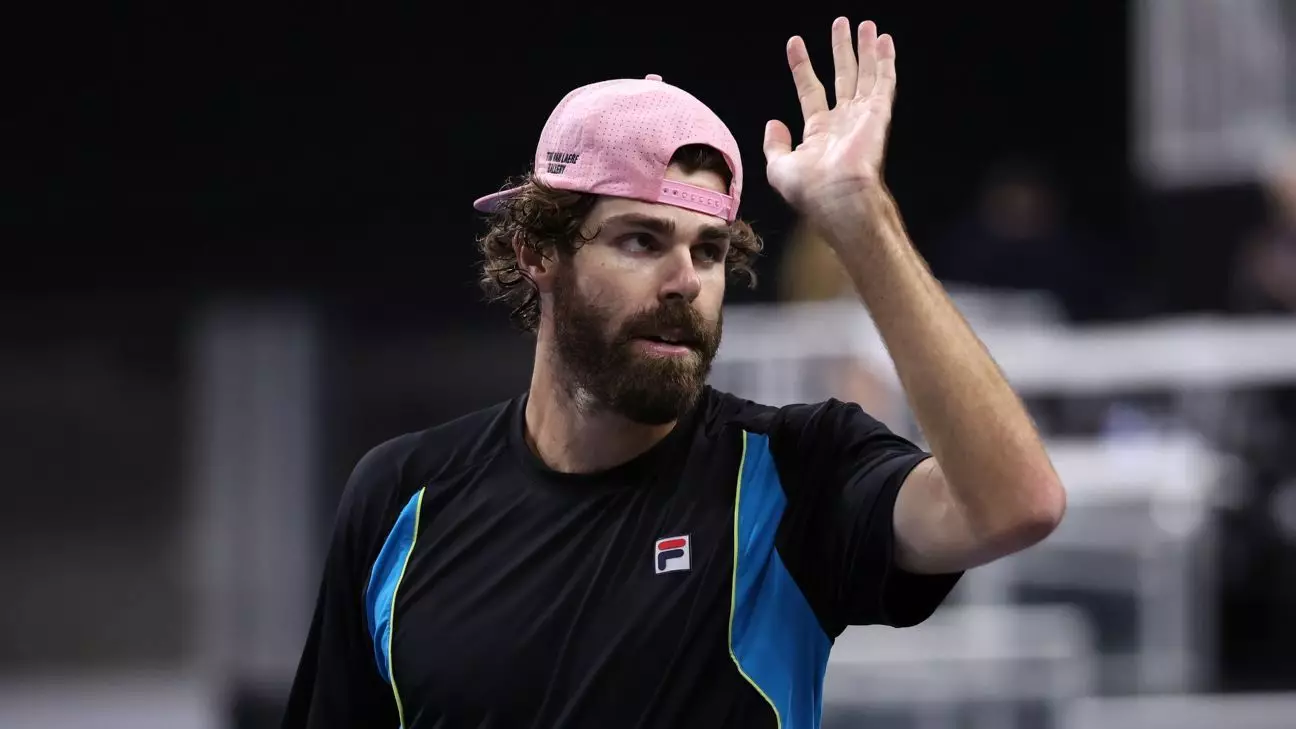In the world of professional tennis, the integrity of the game is intertwined with the roles of players, officials, and spectators. A recent incident at the Dallas Open has highlighted the complexities within this dynamic, particularly focusing on the interactions between athletes and umpires. Reilly Opelka’s altercation with chair umpire Greg Allensworth has raised questions about officiating standards and the consequences of not adhering to them.
During a critical moment of his match against Cameron Norrie, Opelka found himself increasingly distracted by a fan’s persistent coughing. The player, known for his exceptional serve, paused mid-point to address the disruptive noise. In a heated exchange, he directed an expletive-laden comment at the spectator, who he believed was intentionally trying to sabotage his serve. The situation escalated when Allensworth intervened, issuing a code violation for Opelka’s behavior, which resulted in a point penalty due to the audible obscenities.
This incident exemplifies the fine line athletes walk between asserting their right to play undisturbed and the need to maintain decorum on the court. The ATP’s rulebook stipulates that a first infraction results in a warning, while a subsequent offense warrants a harsher penalty. However, any reasonable observer could question whether the code violation issued to Opelka was justified, especially in light of the disruptive behavior from the audience member.
Following his eventual victory, Opelka did not hold back in expressing his frustration both with the umpire’s decision and the broader implications it entailed. He labeled Allensworth as the “worst ref on the ATP,” suggesting that a lack of competence could have cost him the match. Notably, Opelka’s comments underscored a sense of mistrust in officiating within the league, a point made even more significant by his insistence that the referee should be held accountable.
The contrasting perspectives of players and officiating staff create a challenging environment in professional sports. While rules exist to maintain fairness, they must also be applied judiciously to ensure that players are not penalized for standing up against perceived injustices. Opelka’s determination to confront both Allensworth and the disruptive fan highlights a growing trend among athletes: a willingness to defend their ability to compete on equal footing.
A Call for Systemic Change
Opelka’s call for the ATP to consider disciplinary measures against Allensworth signals an urgent need for a reevaluation of how officials are held accountable for their decisions. His suggestion that the referee be sidelined for multiple tournaments emphasizes the potential long-lasting consequences of poor officiating. This raises an essential question about the standards of conduct expected from chair umpires and officials across the league.
In sports, every decision matters. An official’s failure to act against crowd disturbances could lead to unfair advantages for one player over another, ultimately shaping the outcome of matches. The ATP must reassess its structures to ensure that both players and officials fulfill their responsibilities without prejudice or inconsistency.
Ultimately, the controversy surrounding Opelka’s match can serve as a catalyst for constructive dialogue surrounding sportsmanship, accountability, and the overarching need for a system that upholds the integrity of the sport. The relationship between players and umpires remains integral to the fabric of tennis, but changes may be necessary to secure a fair and competitive environment for all athletes involved.

